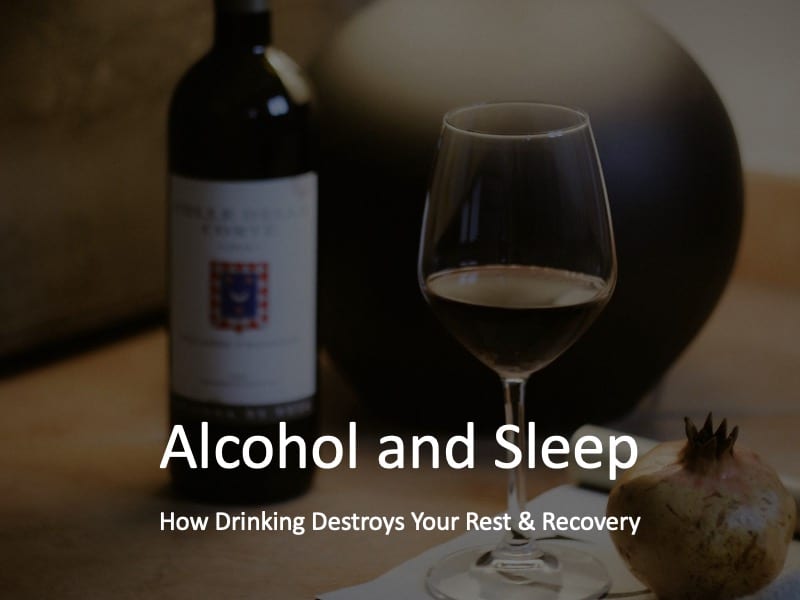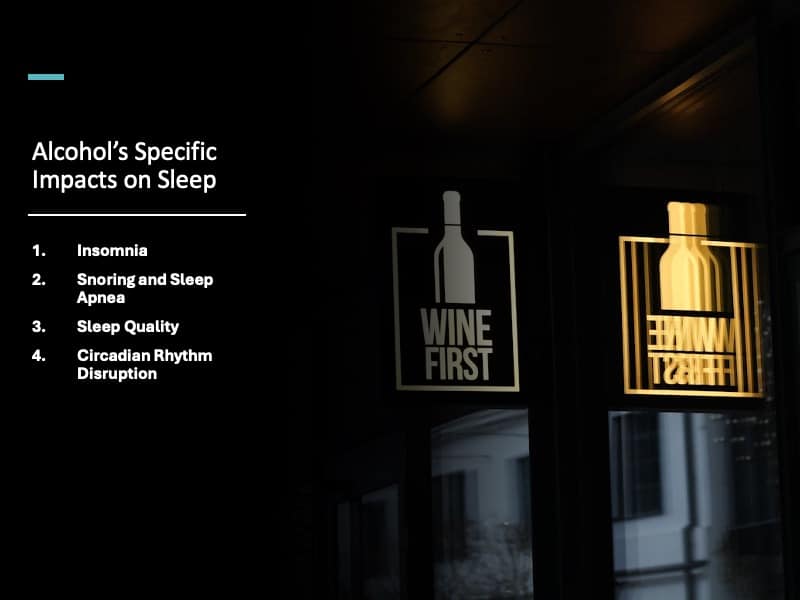Alcohol and Sleep: How Drinking Wrecks Your Rest & Recovery
As a professional athlete, I’ve seen firsthand how alcohol can sabotage sleep quality, recovery, and overall health.
Sleep is the cornerstone of physical performance and mental well-being, yet alcohol continues to disrupt this vital process.
While many people think a nightcap can help them sleep, the truth is far more complex—and alarming.
How Alcohol Affects Sleep: A Deceptive Sedative

At first glance, alcohol seems like the perfect sleep aid. It relaxes the nervous system and can make you feel drowsy. However, this sedative effect is misleading and short-lived.
- Alcohol disrupts the natural progression of the sleep cycle, particularly the rapid eye movement (REM) phase.
- REM sleep is essential for cognitive function, emotional regulation, and muscle repair.
By suppressing REM sleep, alcohol leaves you groggy and mentally foggy, even after a full night in bed.
In fact, research shows that alcohol leads to fragmented sleep.
While you might fall asleep faster, you’re likely to wake up during the night and struggle to get back to sleep.
This is due to alcohol’s interaction with neurotransmitters like gamma-aminobutyric acid (GABA), which temporarily slows brain activity but then rebounds, causing restlessness.
The Worst Alcoholic Drinks for Sleep
Certain alcoholic beverages are particularly damaging to sleep quality, and they often share one or more problematic traits.
Drinks loaded with sugar, like cocktails, increase blood glucose levels, causing energy spikes and crashes.
This rollercoaster effect triggers cortisol production, which can keep your body in a stressed state when it should be winding down.
Alcohol combined with caffeine is another disaster for sleep. Drinks like espresso martinis or rum-and-cola mask alcohol’s sedative effects while introducing stimulants that delay the onset of sleep.
Even wine and beer, often perceived as “lighter” options, can disrupt sleep patterns because alcohol itself is a central nervous system depressant that leads to rebound wakefulness.
I used to think drinking red wine before bed was healthy because of its natural melatonin and resveratrol content, but I later learned that even red wine before bed can negatively impact your health and sleep quality.
Alcohol’s Specific Impacts on Sleep

Alcohol doesn’t just disrupt sleep—it undermines nearly every aspect of it.
From causing restless nights to exacerbating sleep disorders like insomnia and sleep apnea, its effects go far beyond making you feel groggy the next day.
By interfering with the body’s natural processes for rest and recovery, alcohol turns what should be a rejuvenating night of sleep into a fragmented, shallow experience.
Understanding the specific ways alcohol harms sleep can help you make informed choices about when—or if—you should drink.
1.) Insomnia
Alcohol consumption is a major contributor to insomnia. While it can initially lull you to sleep, its metabolization leads to frequent awakenings.
Your body transitions from sedation to stimulation, making it hard to stay asleep or enter deeper stages of sleep.
2.) Snoring and Sleep Apnea
Alcohol relaxes the muscles in your throat and airway, which increases the risk of snoring and sleep apnea.
For those already dealing with these conditions, alcohol can exacerbate symptoms, leading to fragmented and non-restorative sleep.
3.) Sleep Quality
The most significant consequence of alcohol is its impact on sleep quality.
By disrupting REM sleep, alcohol deprives you of the restorative benefits of a full night’s rest.
This impairs memory consolidation, learning, and emotional balance while leaving you feeling fatigued the next day.
4.) Circadian Rhythm Disruption
Regular alcohol use can interfere with your body’s internal clock, also known as the circadian rhythm.
This disruption makes it harder to maintain a consistent sleep schedule, leading to chronic sleep issues over time.
Why You Should Avoid Alcohol Altogether, Especially Before Bed
As someone who has to perform at a high level every day, I’ve learned that alcohol offers no real benefits when it comes to sleep—or overall health.
Even one drink can throw off your sleep cycle, and regular drinking compounds the effects over time.
Avoiding alcohol before bed is especially important for people working on their body composition because alcohol and weight loss have an inverse relationship, as disrupted sleep interferes with metabolism, increases hunger hormones, and makes fat loss more difficult.
If you’re serious about maximizing your health, recovery, and daily energy, skipping alcohol altogether is one of the smartest decisions you can make.
Drinking before bed is particularly harmful because your body prioritizes metabolizing alcohol over its natural recovery processes.
This impacts not only sleep but also hormone regulation, muscle repair, and immune function.
If you think a drink or two helps you relax, consider this: the relaxation is superficial, and the cost is long-term damage to your health and well-being.
How to Minimize Alcohol’s Impact on Sleep
If you choose to drink, there are steps you can take to reduce the damage:
- Drink Earlier in the Day: Give your body at least 3-4 hours to metabolize alcohol before sleeping.
- Hydrate: Alternate alcoholic drinks with water to stay hydrated and support detoxification.
- Opt for Low-Sugar Options: Choose dry wines or spirits mixed with soda water instead of sugary cocktails or beer.
- Supplement Smartly: Magnesium-rich foods or supplements can help counteract alcohol’s impact on the nervous system. An excellent option is Rootcha’s Magnesium & Zinc, which supports sleep on several levels.
- Practice Moderation: Limit alcohol consumption to special occasions, not nightly rituals.
Last update on 2025-07-18 / This article includes affiliate links/Images via Amazon Product Advertising API. I may earn commissions on purchases made through these links.
Final Thoughts: Why You Should Prioritize Sleep Over Alcohol
The bottom line is that alcohol and sleep are fundamentally at odds. Alcohol might seem like a harmless indulgence, but the science tells a different story.
It compromises the quality of your rest, leaving you less equipped to handle the challenges of your day.
For athletes like me, and for anyone who values their health, avoiding alcohol—especially close to bedtime—is a decision that pays dividends in performance, energy, and longevity.
If sleep is the foundation of health, alcohol is the wrecking ball. Instead of reaching for a drink, consider sleep-friendly alternatives like herbal tea, mindfulness exercises, or reading to wind down.
If you have serious trouble sleeping, try using a natural sleep aid like Raw Botanics Rest.
Your body—and your future self—will thank you.
This website does not provide medical advice. This website site does contain affiliate links, and purchases may earn a commission.
Read my Medical Disclaimer, Review Disclaimer, and Publishing Policies for more details. Use of this site indicates acceptance of these terms.



